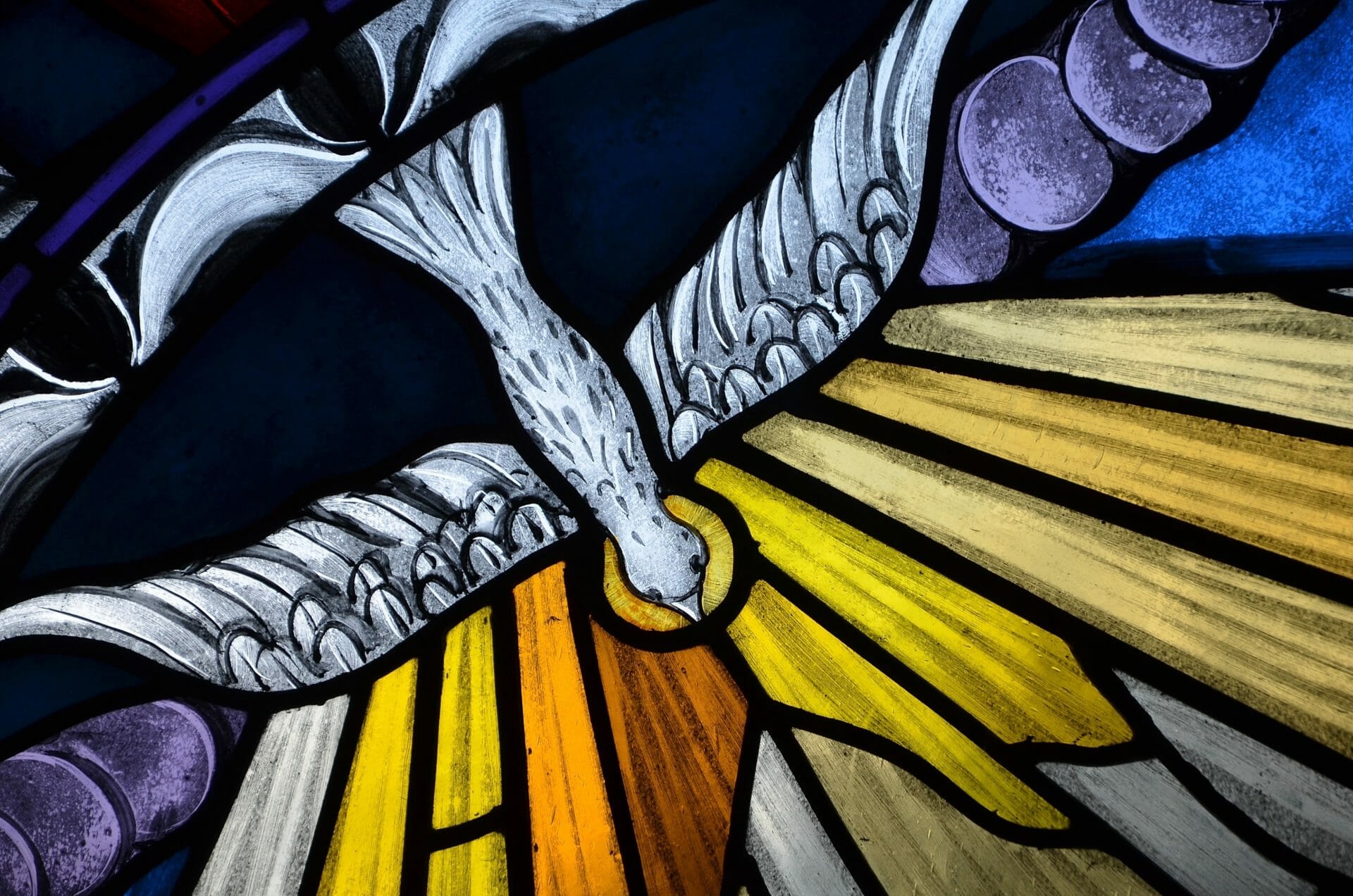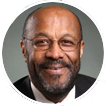
From cowardly to courageous, from frightened to fearless, from denying to defending Jesus—Embracing the power and purpose of Pentecost

Dr. Marvin McMickle
May 20, 2021
I remember a voice message left on my home phone when I was still serving as pastor of Antioch Baptist Church in Cleveland, Ohio. The message said, “the church has no power.” That phone message alerted me to the fact the fact that a power failure involving the electric lines leading into the building had occurred. As a result of that power failure, the lights could not illuminate the building, air conditioning could not cool the rooms, and office equipment could not be used. The phones still worked, but the answering machines could not accept messages. In a very physical and practical sense, the church could not function because “the church had no power.”
The best way to think about Pentecost is to consider that without that event the church would have no power. Pentecost is the day when churches all over the world pause to remember the moment in Jerusalem when the Holy Spirit swept into the upper room where the disciples of Jesus were still in hiding, 50 days after the resurrection of Jesus. Up to that point, those men barely ventured outdoors for fear that what had happened to Jesus might also happen to them. Up to that point, there was no preaching going on and no healings occurring in the name of Jesus. There was just a group of frightened people not knowing what to do next. Christ may well have been risen, but before the Day of Pentecost “the church had no power!”
The word Pentecost literally means 50th or 50th day. The term originated with ancient Judaism, and with their celebration of the first harvest of the agricultural year. Pentecost was the time when the Jewish people gave thanks to God for what the land had produced and for what their labor in the fields had yielded. The observance of Pentecost for Judaism occurred seven weeks after the observance of Passover, and involved Jewish men gathering in the Temple in Jerusalem to mark that agricultural cycle.
Pentecost was a refashioning of the notion of an agricultural festival, since on that day more than 3,000 souls were added to the number of followers of Jesus (Acts 2:41). The Day of Pentecost resulted in a great harvest for the early church. That great harvest of converts occurred after the power of the Holy Spirit was on full display in the life and words of the apostles. You can view this as a fulfillment of Jesus saying to Peter and John that “I will make you fishers of men” (Matthew 4:18-19).
If the church today wants to experience growth in its membership, it should not start with a mission statement or a vision statement or a new constitution and bylaws. Hear me when I tell you that the key to church growth as an institution and to spiritual growth as individuals is to receive and act on the power of the Holy Spirit.
Some may believe Pentecost is something reserved for those persons who call themselves Pentecostals. Pentecost belongs only to Pentecostals in the same way that baptism belongs only to Baptists. All Christians believe in baptism because it is something that Jesus commanded all Christians to observe. In the same way, all Christians should observe Pentecost and welcome the presence and power of the Holy Spirit, because it is something all Christians will need if they want to serve God in this wicked world.
Look at what happened to the first disciples of Jesus as a result of Pentecost and the gift of the Holy Spirit. After the arrest and crucifixion of Jesus, most of them went into hiding in the upper room where they had shared in the Lord’s Supper with the Lord. They were afraid of every knock on the door. They were afraid of the sound of every voice that passed them in the street below.
The best way to think about Pentecost is to consider that without that event the church would have no power. Pentecost is the day when churches all over the world pause to remember the moment in Jerusalem when the Holy Spirit swept into the upper room where the disciples of Jesus were still in hiding, 50 days after the resurrection of Jesus. Up to that point, those men barely ventured outdoors for fear that what had happened to Jesus might also happen to them. Up to that point, there was no preaching going on and no healings occurring in the name of Jesus. There was just a group of frightened people not knowing what to do next. Christ may well have been risen, but before the Day of Pentecost “the church had no power!”
These were the men Jesus had chosen to carry his message to the whole world. However, here they were afraid of their own shadow. Judas had already committed suicide, and the others were afraid that if they tried to speak openly about Jesus there might be a cross waiting for them as well. We would not be gathering as Christians spread out all over the world, more than two billion Christians in the world today, if those men had stayed locked up in that room.
What happened? The answer is the Day of Pentecost. By the end of Peter’s sermon that day, 3000 persons confessed faith in Christ. In the days that followed more and more people came to know Christ as Lord. How did Peter go from being cowardly to courageous? How did Peter go from being frightened to fearless? How did Peter go from denying Jesus to defending Jesus and declaring him to be the long-awaited Messiah of Israel? It was the power and purpose of Pentecost that made the difference in his life, and that same power is needed in the lives of all Christians if the church is to have any positive and lasting impact upon the world. Peter did not simply change his mind about Jesus; Peter himself was changed by the power of Pentecost.
The same Peter who feared for his own life in the minutes after the arrest of Jesus as recorded in all four gospels, became the Peter who possessed parrhesia or the bold speech as described by the Sanhedrin in Acts 4:13. It must be remembered that approximately 50 days earlier, it was Peter who said on three different occasions that he was not a follower of Jesus. Then, on the Day of Pentecost there is Peter boldly declaring the message about Jesus in front of the same crowd of people he had previously been afraid of even speaking the name of Jesus to (Acts 2:14-40). This is parrhesia.
Let us focus on that word again; parrhesia. That is a Greek word that means “bold speech without fear or concern over the consequences of what you are saying.” That is the story of the early church in Jerusalem. Peter and John are overheard preaching in the streets about Jesus as the resurrected Messiah of Israel. The leaders of the Jewish temple objected to what they were saying. They were brought before the Sanhedrin, which was a combination of religious and political leadership for the Jewish nation. In front of their judges, they preached about Jesus. The text in Acts 4 says that the judges were amazed, because the disciples were obviously common and untrained men so far as any formal education in religion and philosophy was concerned. However, they spoke boldly – they spoke with parrhesia.
What happened? How could the disciples who had all been so frightened that they would not so much as show their faces in public become bold and outspoken in the presence of the very same people they had once been afraid to face? What happened? By Acts 17, the followers of Jesus are accused of turning the world upside down (KJV) or causing trouble all over the world (NIV). What happened? The answer is parrhesia. The answer is Pentecost when the church received its power. The difference was not anything that Peter did on his own. The difference is what the Holy Spirit did to him and through him.
What I want to suggest today is that we need the power of Pentecost today just as much as those first disciples did in Jerusalem and Damascus and Antioch. The problem may be that our churches have phone lines, but no power. We have electricity, but no power. We have Livestream and Zoom and websites, but we have no power, no parrhesia, no holy boldness, no convictions that might cost us some worldly popularity. We have ever-larger sanctuaries with state-of-the-art technology, but the world around us continues to show a decline in decency and an increase in bigotry. All that can change when the church lays claim to the Day of Pentecost and to parrhesia.
Dr. Marvin A. McMickle is professor of African American Religious Studies at Colgate Rochester Crozer Divinity School, Rochester, N.Y., where he served as president from 2011-2019.
The views expressed are those of the author and not necessarily those of American Baptist Home Mission Societies.


